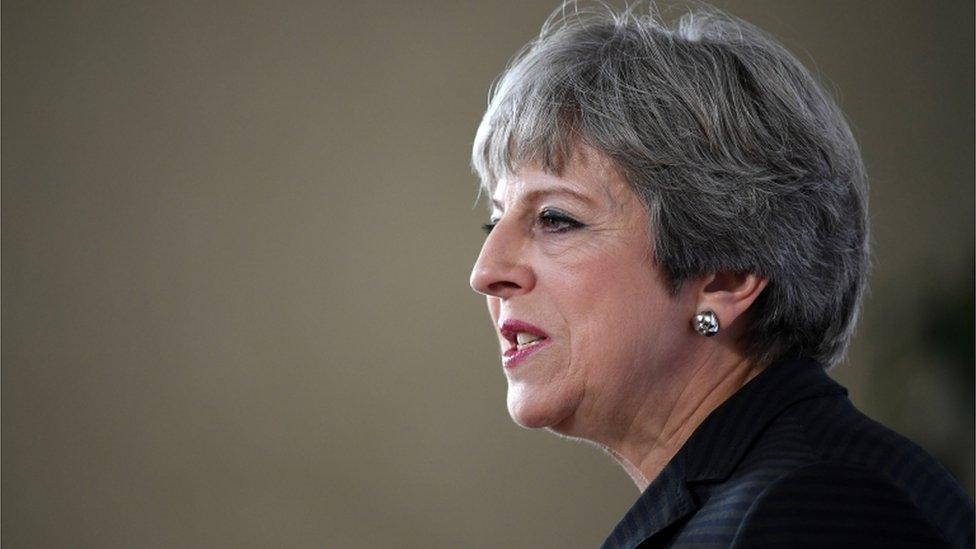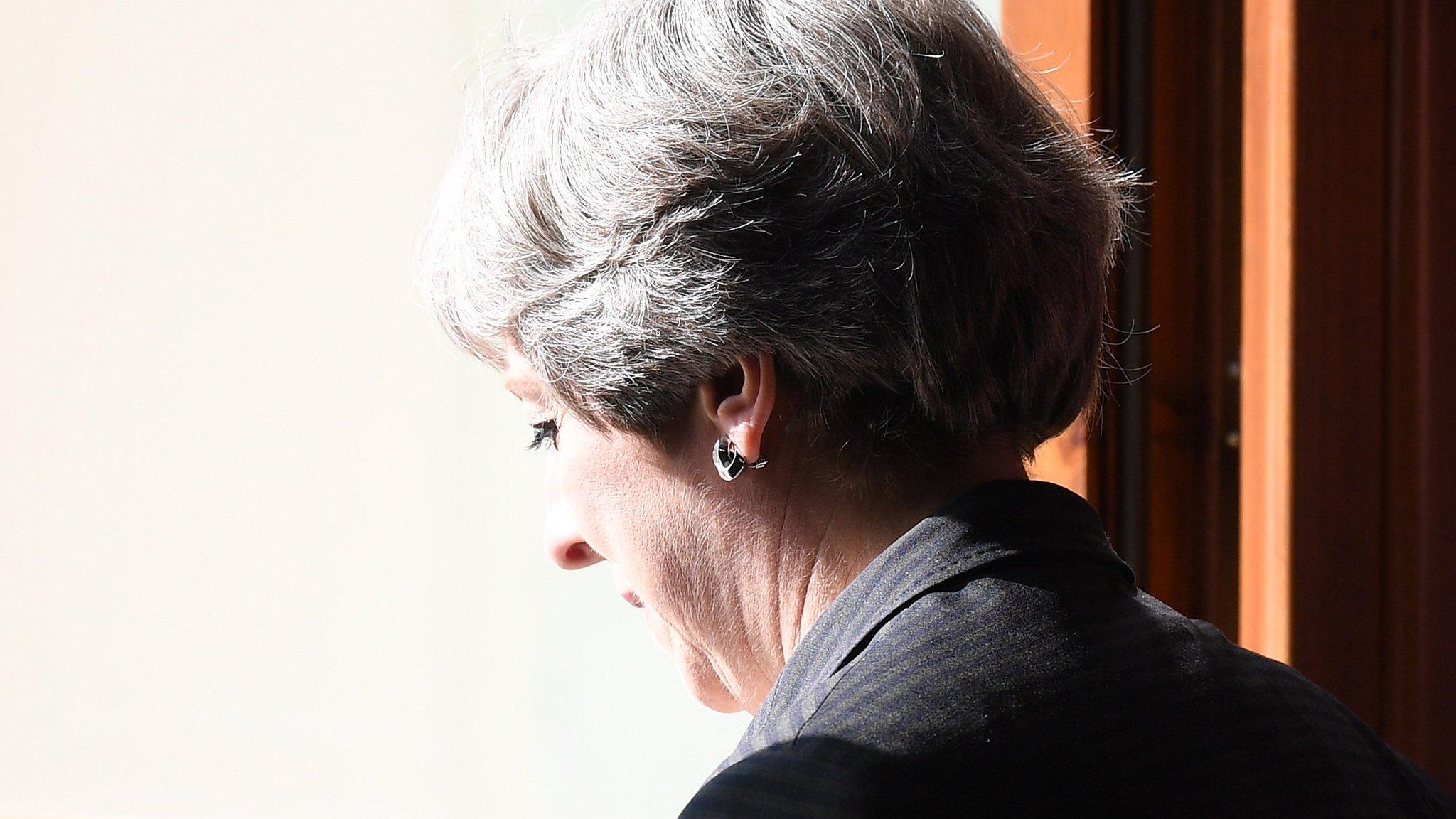Did May's Florence speech satisfy the 'big speech' criteria?
- Published
May on Brexit: "A two year transition period"
There is a problem with BIG SPEECHES. Yes, BIG SPEECHES in capital letters.
They are often postponed, because governments take longer than they had hoped to make their minds up about what they want to say.
They are sometimes born out of parties looking for a way out of a dead end - "there will be a BIG SPEECH on that in the coming months"... "Don't worry about us not having answers about that right now, it's because we are holding back those really, BIG, BIG serious thoughts for the BIG SPEECH".
"What big speech?" "Ah, you'll see, the REALLY BIG SPEECH".
Cue expectations raised, opponents' appetites whetted, backbenchers hoping their leaders are on the verge of a miraculous solution that will somehow find the resolution to a problem that has plagued their party for years.
Yes, this time, the "REALLY BIG, BIG SPEECH", will be the one that will provide a never-ending supply of milk and honey to run from the nation's taps and inspire a grateful nation to cleave to their leader, their party, once more full of promise, hope and vigour.
Sometimes, former practitioners of what I suppose is, after all, the art of politics would admit now in private that those "big speeches" were sometimes - guess what? - a result of that all-too-human instinct: why deal with a problem today what you can possibly put off until tomorrow?
Something looks a bit hard? Don't worry, promise a big speech, and you essentially give yourself more time to find a way out of a thorny problem.
Cynicism aside, there have, of course, been plenty of occasions where a big speech has indeed been the product of months of new thinking, that in turn has brought about major change.
But so often, expectations of the BIG SPEECH spiral out of control. The crashing realisation that the occasion will induce no gasps of shock, no shrieks of horror or cries of joy, leads only to a narrative that the speech "failed to inspire", "fell short", or was "snubbed".
This time, for this BIG SPEECH, both things are true.
As has been written about so much this week, both here and elsewhere, there is still no friendly concordat in the cabinet over the architecture of our long-term relationship with Europe.
Should the ties be closely woven threads, or long, flimsy connectors that hardly bind? They disagree and they haven't decided yet.
The speech, therefore, didn't give away any new information on the kind of final deal the government hopes to strike; the agreement that will profoundly shape our relationship with the continent for decades and decades to come.
In the current political climate, a cabinet that contains Remainers and Brexiteers both was never going to agree that by today.
New nuggets
But beware claims that this big speech was therefore the ultimate political disappointment, the EMPTY SPEECH. It was not. Telling the public that the Brexit that she has chosen means we might be entangled with the EU until 2021 is a big moment for Theresa May.
It's been pretty well established in Whitehall for many months; the most eager Brexiteers who wanted short, sharp exit lost that battle some time ago. And her acknowledgment of that today pulls against her repeated insistence in the election that the public just want politicians to "get on with it".
And there were new nuggets of information that will influence the talks.
The prime minister gave an unconditional guarantee of security co-operation with the rest of the EU, whether you think that is the right thing to do or the loss of a potentially powerful bargaining tool.
And Number 10 believe their offer on enhanced legal protections for EU citizens takes them closer to a deal.
Business nerves have been somewhat soothed by her promise of transition. And at least for today, the Tory party, riven with divisions over Europe, seems to (almost) be speaking as one.
Whether that makes this truly a BIG SPEECH is for you to decide.
Did it answer all the questions that Theresa May will need to answer if she stays in Number 10 during this long process? Far from it.
But did it make a difference, not just to the talks, but to the politics at home? Yes indeed.
- Published22 September 2017

- Published22 September 2017
